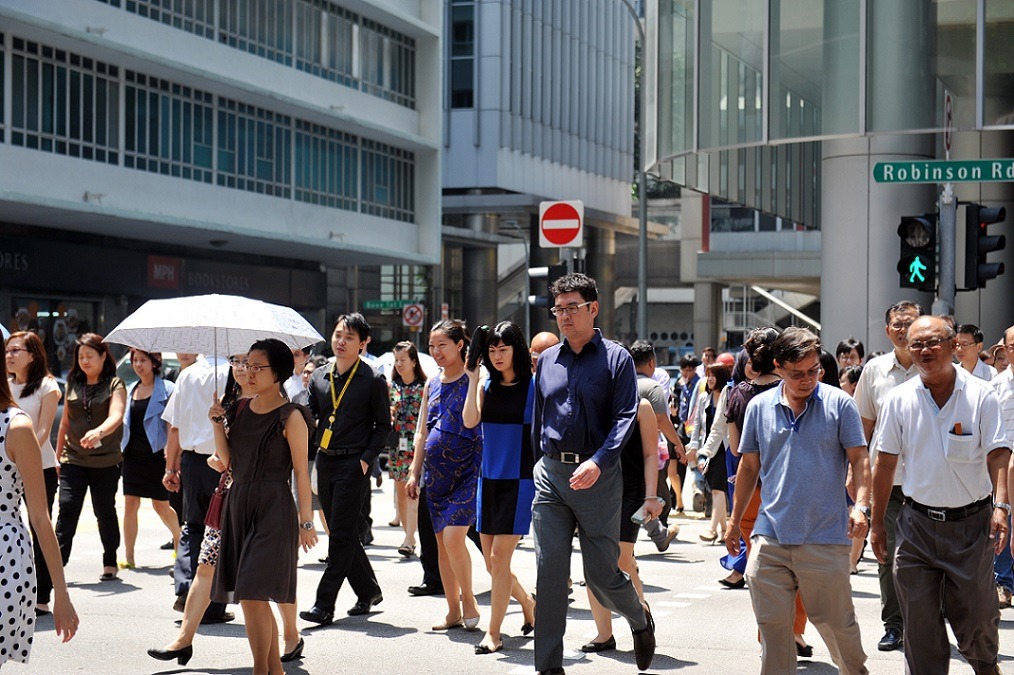
Living in a young, thriving, forward-thinking nation like Singapore, one would think that we would have resolved the narrow-minded thinking of male favouritism. Unfortunately, this is not the case- at least not so apparent in the workplace. As Singapore progresses economically, it is only coherent that the standard of living increases at the same time. This leaves most couples in Singapore to have a dual-breadwinner situation where both parents have to work to support the family’s expenses due to the rise in living costs. With equal opportunity in education for both genders in Singapore, more female Singaporeans have chosen the option to work and climb the corporate ladder, even if not for the reason of starting a family.
As a young woman in Singapore who has entered the workforce for a mere few years myself, I would like to give my two cents’ worth regarding this issue as fairly as possible. As a large percentage of the working class is made up of our parents’ generation, it is safe to assume that most of such gender discrimination was carried forward from a few decades ago as most employers would be between their forties to sixties where gender inequality exists as an evident social problem due to unequal education opportunities. A recent study by Glassdoor Economic Research has shown statistics that women in Singapore are earning approximately 13 per cent less than their male counterparts, and they suggest that a possible reason for this pay gap is the longlasting gender bias in the workplace. However, with all other factors such as occupations, ages and industry types considered, the pay gap then drops to about 5 per cent.
While I do not rule out the possibility of gender bias being a large contributing factor to this income gap, it is difficult to point out or measure gender bias, especially if it is carried out in an unconscious or subtle manner. What seems to be the pressing problem, I believe, is the lack of transparency in our income. Discussing about how much one earns is an unexplained taboo that exists in our society. Money is always a sensitive issue, but it is precisely because Singaporeans are either embarrassed, over-competitive or distrustful to be open about their income that leads to employers being able to perform acts of pay wage differences. If Singapore truly runs by a meritocratic system as it claims to be, companies should then hold discussions about wages in an open and fair manner with their employees and pay based on work performance.
Presuming both genders in Singapore are given the same opportunities in education and employment and are then assessed based on their abilities, would men and women be finally standing on equal ground? Logically, they should be but that doesn’t seem to be the case. Even with the seemingly ideal circumstances to minimize inequality due to gender discrimination in the workplace, let’s not forget social responsibilities play a big part in work performance too. While more women are climbing the corporate ladder, it does not mean that they have gotten rid of their household responsibilities such as chores or childcare. Working women start their day as early as men (if not earlier), but are still expected to take on the role as the family’s caretaker after work. As much as this statement is a generalization, stereotypes only exist if it is a true reflection of the majority in a situation. With the extra burden or responsibilities predominantly carried by female Singaporeans in the households, it is without doubt that their work performance would pale in comparison to their male peers due to work-life imbalance. In late 2017, our Minister of Education, Mr Ong Ye Kung said, “I also hope men can step up more to share household responsibilities with their wives. We do the dishes not because we are helping our wives, but because we too had dinner. We change the diapers for the babies not because we are helping our wives, but because they are also our children.”
I have to admit, that Singapore as a society at large can be seen to be inching towards a gender bias free society. Laws have been implemented to ensure that employees’ rights are protected in view of unfair dismissal at the workplace. Setting aside the lack of transparency in salaries and undivided household responsibilities between couples, there are truly many other contributing reasons to the existence of a pay gap between men and women in Singapore. In light, there can never be absolute equality in anything that is not made equal to begin with. We can only hope that as a society, Singaporeans can eliminate as much discrimination as we can and narrow the unhappiness and unfairness among our people to make our nation a better home for all.